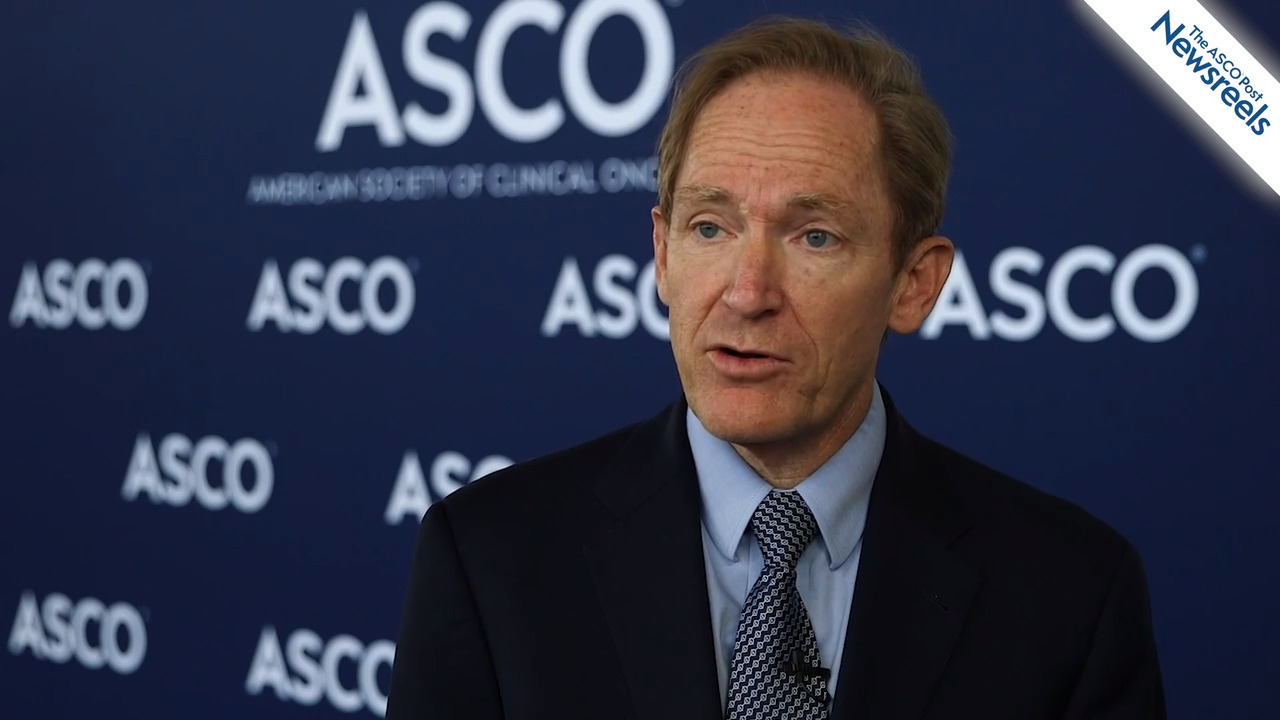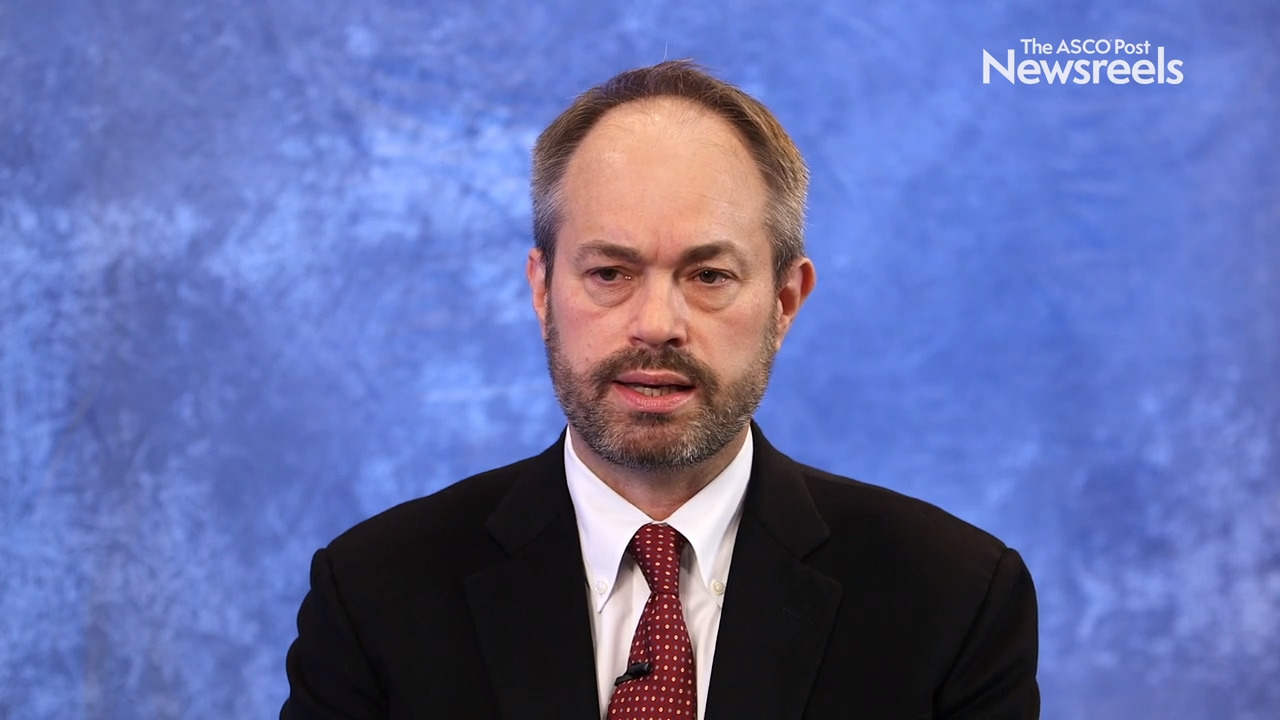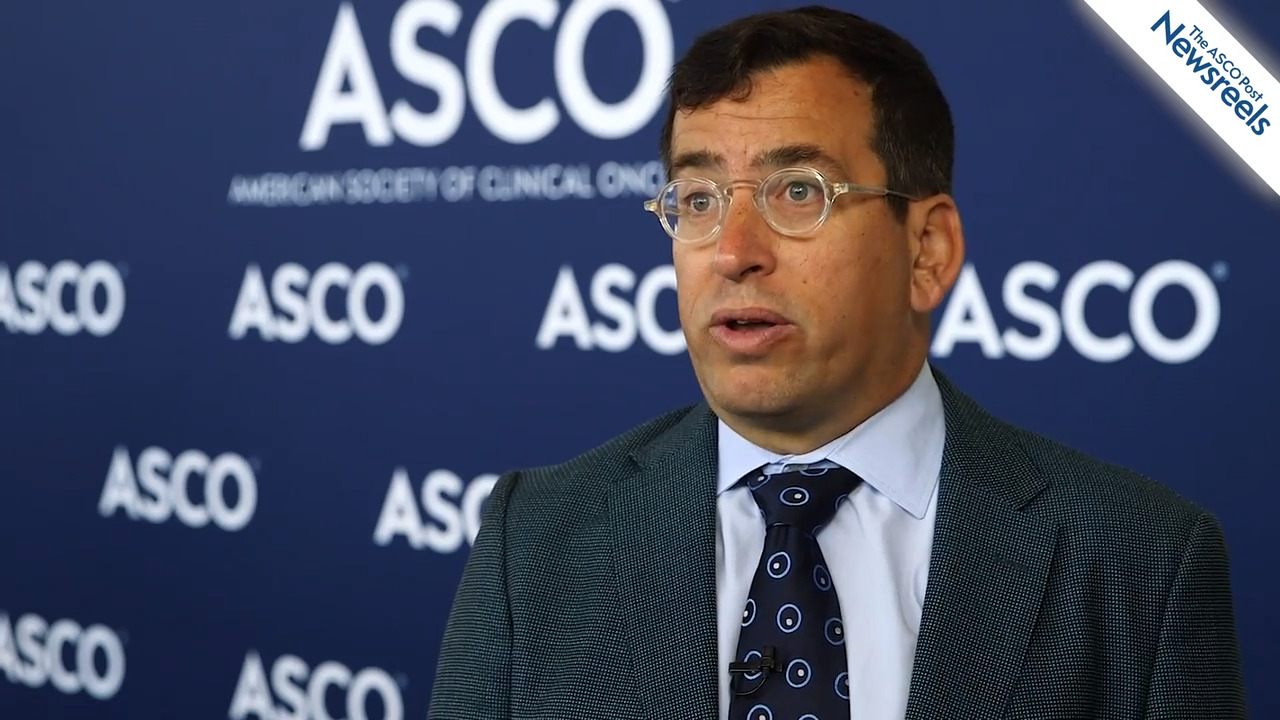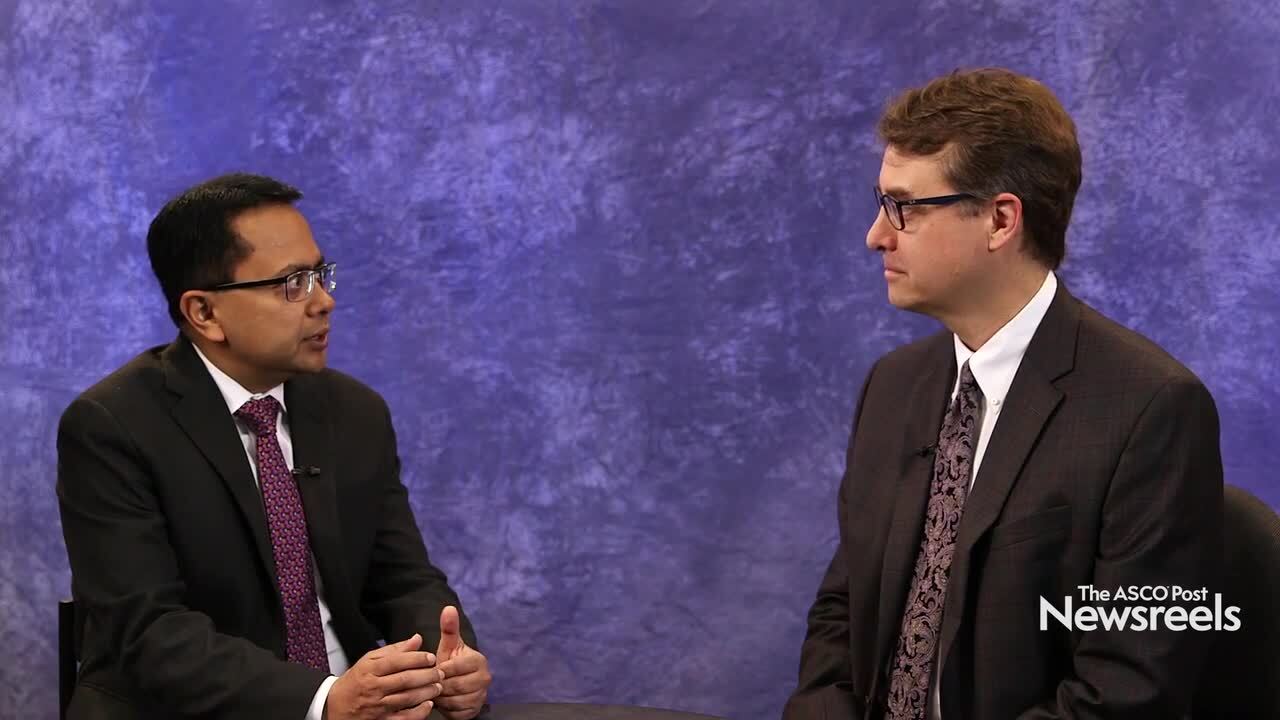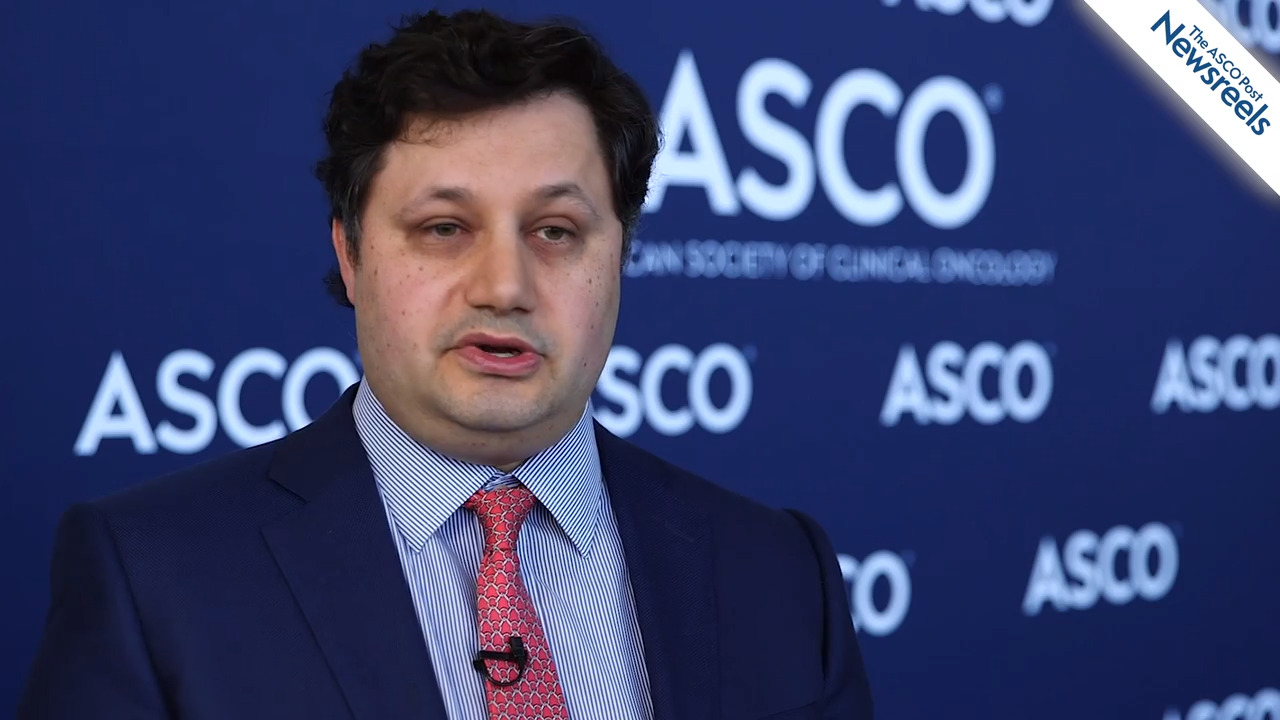Kim N. Chi, MD, on Metastatic Castration-Sensitive Prostate Cancer: First Results From the TITAN Trial
2019 ASCO Annual Meeting
Kim N. Chi, MD, of BC Cancer, discusses the first phase III findings from the TITAN study of apalutamide vs placebo in patients with metastatic castration-sensitive prostate cancer receiving androgen-deprivation therapy (Abstract 5006).
Mark J. Levis, MD, PhD, of The Sidney Kimmel Comprehensive Cancer Center at Johns Hopkins University, discusses the effect of gilteritinib on survival in patients with FLT3-mutated relapsed/refractory AML who have common co-mutations or a high FLT3-ITD allelic ratio, and the importance of FLT3-ITD testing at diagnosis and again at relapse (Abstract 7000).
William G. Wierda, MD, PhD, of The University of Texas MD Anderson Cancer Center, discusses the TRANSCEND CLL 004 trial, which studied the use of an experimental CD19-directed CAR T-cell product in heavily pretreated patients with chronic lymphocytic leukemia or small lymphocytic lymphoma (Abstract 7501).
Edward B. Garon, MD, of the David Geffen School of Medicine at the University of California, Los Angeles, discusses long-term survival data on patients with advanced non–small cell lung cancer treated with pembrolizumab and those with PD-L1 expressed in at least half of their tumor cells (Abstract LBA9015).
Neeraj Agarwal, MD, of Huntsman Cancer Institute, University of Utah Health Care, and Thomas W. Flaig, MD, of the University of Colorado, discuss phase II findings on a novel predictive biomarker of response to the two accepted neoadjuvant regimens for muscle-invasive bladder cancer: methotrexate/vinblastine/doxorubicin/cisplatin and gemcitabine/cisplatin (Abstract 4506).
Brian C. Baumann, MD, of Washington University School of Medicine, discusses study findings suggesting postoperative radiotherapy may be an option for patients with locally advanced bladder cancer after radical cystectomy who are unable or unwilling to use adjuvant chemotherapy (Abstract 4507).
